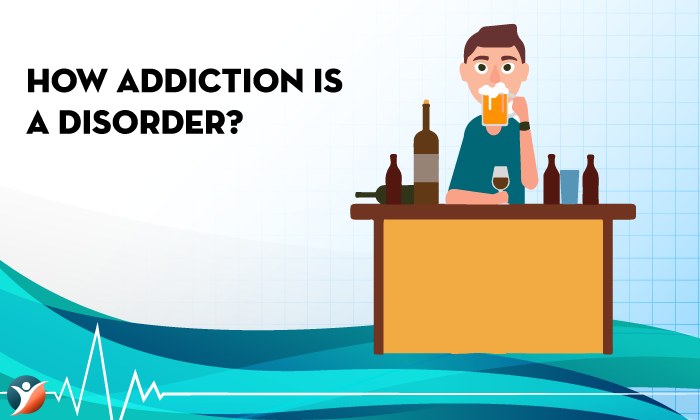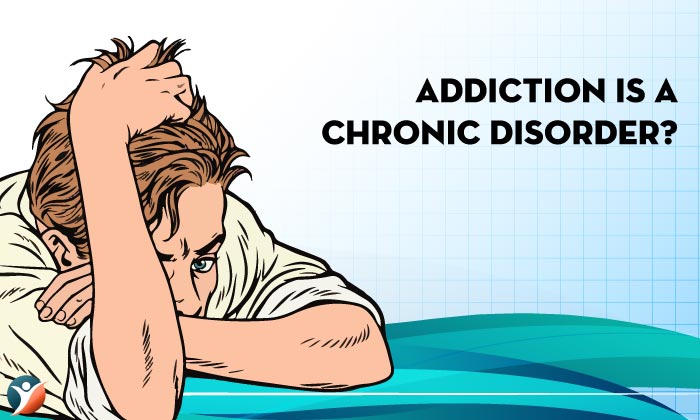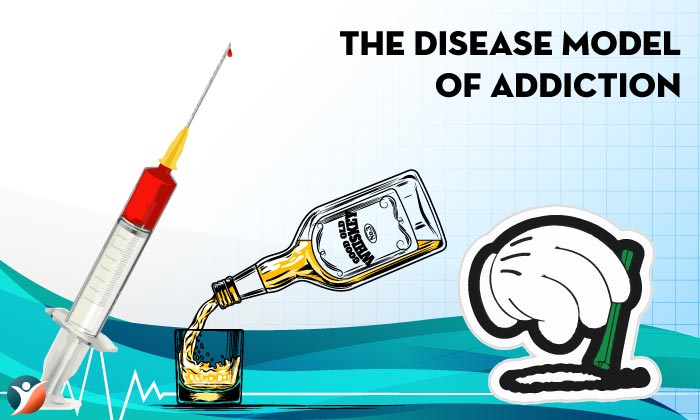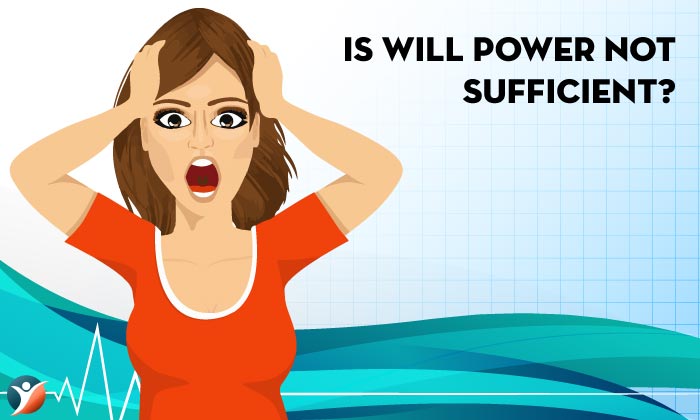
How Addiction is a Disorder?

Addiction is a composite disease of the body and brain that involves the uncontrollable use of one or more than one substance. It seriously affects the social life of the person as well as his health. Due to addiction, various regions are disrupted in the brain. These regions are accountable for motivation, reward, judgment, memory and learning. As a result of addiction, different body systems get damaged. In addition to this, relationships and families also get disturbed. A person is unable to focus at the workplace.
Table of Content
- Addiction is a Chronic Disorder?
- Addiction Is A Real Disease
- The Disease Model Of Addiction
- What are the Effects of Substance on the Brain?
- Is Will Power Not Sufficient?
- Are Addicts Answerable for their Actions?
- How Addiction Affects a Person?
- Conclusion
Addiction is a Chronic Disorder?
A chronic disease is an enduring situation that can only be maintained, but not permanently cured. Around 25-50% of addicts who use different substances are seen to suffer from a severe and chronic disease. Addiction is a chronic disease and if it gets relapsed, the disorder requires proper treatment. After this, it also requires continuous monitoring, care, and family support. With the support, it can easily be managed and a person can easily recover. Even the addicts who suffer from severe and chronic disorders can be treated, as it is easy to manage and reverse the disease. Usually, it requires treatment and continuous monitoring. In addition to this, a great support of peers and family is also required for recovering.

Addiction is a Real Disease
Addiction is a chronic disease that often relapses. This disease encourages the addict to use more quantity of drugs which leads to harmful results. Due to this, not only his personal life suffers but also the people around him get affected because of such negative activities. When a person takes a drug for the first time, the decision is taken by the person. Later, it becomes the need of the body and the person gets addicted. The brain changes during the time challenge the self-control of an addicted person. Addiction is a chronic disease and it destroys the ability of the person to resist taking drugs.
It is noticed that the people who are seriously addicted find it difficult to quit the substances. Generally, the need for intensive treatment and must be managed afterward throughout the life. Otherwise, it just leads to social, personal, physical, spiritual or occupational crisis.
The Disease Model of Addiction
Most of the medical associations define that addiction is a chronic disease. The American Society of Addiction Medicine and the American Medical Association also shares the same thought. Like other diseases such as cancer, diabetes, heart disease; addiction is generated by a union of environmental, biological, and behavioral factors. Besides this, genetic risks factors also add to it, but there are fewer chances of it.
Addiction is a chronic disease and due to it, there are some changes noticed in the working of the body and brain. These changes can be because of the risky substances used by the addicts. In case, the addiction is not treated, there are possibilities of mental health and physical disorders. For this, a person needs proper attention and medical treatment. If it is not treated in the proper time, the disease becomes more serious. This can also lead to the life-threatening situation.
According to some people, addiction is not a disease as it starts after an individual decides to take alcohol or drugs. The early stage can be a choice but when the brain gets changed due to addiction, the addict loses control. Such choices lead to diseases. In this case, there is a possibility of quitting such preferences and leading a normal life.

What are the Effects of Substance on the Brain?
After using drugs, people reach the state of euphoria, as they get high. Due to drugs, all the basic needs like thirst, sex, and hunger are satisfied. It is observed that the feelings that provide pleasure are the result of particular chemicals present in the brain. On release of the addictive substances, the brain releases high levels of chemicals. These chemicals are linked with reward or pleasure. [1]
Due to the release of chemicals in a long run, there are some changes in the brain. This is in the form of motivation, memory and reward. During these changes, a person requires the substance to get back to normal. An individual may experience a great craving or desire for the substance. They will continue using it despite being aware of the dangerous or harmful results. Also, the addict will prefer drug over healthy pleasures. There are chances that the person loses interest in regular activities of life. Addiction is a chronic disease and can lead an addict to stop paying attention to his own or the well-being of his near and dear ones. Such changes can overpower the brain for a longer duration. The situation can remain the same even after a person controls using the substances.
Is Will Power Not Sufficient?
The initial decision to take substances gives an idea about the person’s free choice. Once the person’s body starts demanding the drugs, the willpower has no control over it. In fact, one of the most important symptoms of the disease is the loss of control while using the substance.[2]

Are Addicts Answerable for their Actions?
The addicts must not be completely blamed as they are suffering from addiction, which is a disease. Most of the times, people decide about using the substance or not. At the initial stage, addicts do not have any idea about how the body and brain would respond to alcohol and drugs. This is the reason that addicts are not able to control the use of substances. Addiction is a chronic disease and it is always better to quit it at the initial stage. In this phase, it is easy for the people who are not addicted. The addicts need proper treatment for recovering and getting back to normal life. Meanwhile, they also need support and help from family and friends. This increases the chances of recovery and survival of the addict.
How Addiction Affects a Person?
Drug addiction is quite similar to other diseases like diabetes and asthma. There are chances of relapse, so before a person quits the use of the substance, it may again hit back. This disorder can be managed or treated.
Once they start using substances, the addiction over captures life. Then, it becomes harder to manage the things or control oneself from consuming the drugs. It is categorized as a serious disease as it can lead to the changes in the brain system. Due to drugs, an addict becomes physical dependant and cannot easily restrict taking the substance.[3]
Conclusion
The article explains why addiction is a chronic disease? What are the consequences of it? How does it affect the mental as well as physical health? Due to the disorder, not only the addict but the people related to him also suffer. Therefore, it is advised that the addicts must quit such habits. Otherwise, there will arise problems at personal and professional front.
This article gives complete information about what is an addiction and its effect on the people. After using various substances, addicts are unable to resist themselves. Due to this, the personal and professional life of the person gets affected. There are different substances used by the addicts for reaching the state of euphoria. Meanwhile, they forget that the negative consequences of the drug will certainly affect their health. It is better to control such activities at the initial stage and live life in a normal style. Hope, this article provides you with complete information. In case, we missed out anything in this article will be covered up in the next.




